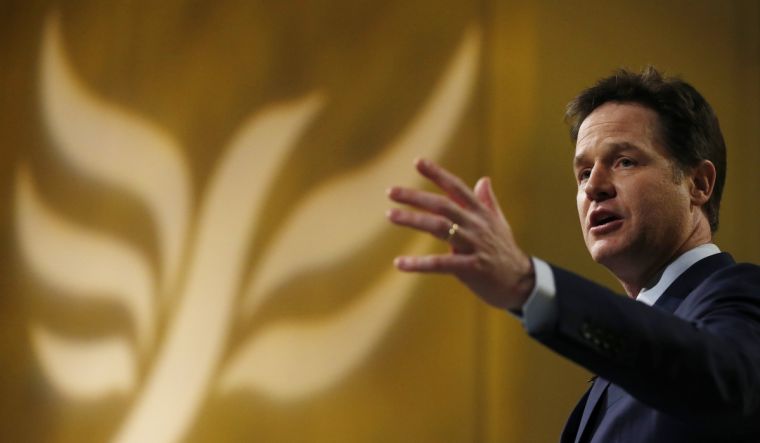Who will hold an unchecked Tory government to account?

Only those with the hardest of hearts cannot feel at least a twinge of sympathy for Nick Clegg and the Liberal Democrats following Thursday's outcome. Here is a party that could have refused to go into coalition back in 2010, but for the good of the country decided that getting into bed with the Conservatives despite the very real risk of alienating many supporters. Angela Merkel, who knows more than a thing or two about coalition governments, had told Clegg that the smaller parties in coalitions always get slaughtered, but Clegg pressed on doing what he believed was right. The Lib Dems would have known as junior partners that they would be unable to keep their very public pledge not to increase university tuition fees and probably had a good idea that the consequences could be extremely painful.
Five years on and those choices have dealt a near fatal blow. Was losing all bar eight of their 57 seats a fair punishment for the tuition fees debacle? Other parties have reneged on promises in the past and not had to pay such a devastating price. Three million of the lowest earners are no longer are required to pay income tax, the youngest children in schools are now able to enjoy free school meals, poorer pupils are receiving additional funding and mental health is being given more of the attention it deserves, but all of this counted for very little as their share of the vote crashed and burned on Thursday.
We talk about the need for our politicians to be more responsible, do the right thing, be honest and say sorry for past failings, but that would not appear to be rewarded at the ballot box.
Interestingly since Thursday night more than 6,000 people have joined the Lib Dems. It's almost as though having received their castigation from the electorate, there is a collective feeling that their humiliation went too far and that they now need to be dragged back from the brink. Perhaps we the voters do have hearts that are able to show a degree of empathy towards our politicians after all.
Politics needs people with big hearts if it is to avoid a loss of compassion towards those on the vulnerable fringes of society. In the book of Isaiah God says this: "Learn to do right; seek justice. Defend the oppressed. Take up the cause of the fatherless; plead the case of the widow."
Over the last few weeks the Liberal Democrats have claimed that they would bring a heart to a Conservative majority government in the same way that they believe they did during the last administration, holding back their partners from more extreme welfare cuts. There will be plenty of arguments among historians over the next few years as to how much of a difference the Lib Dems genuinely made in power and to what extent we all benefited from the two parties working together.
What is easier to contend is that governments need to be held to account for their actions and decisions, whether this is through internal self-regulation (as can be most easily seen in a coalition arrangement) or by effective scrutiny by those in opposition and other groups in society.
With the prospect of £12 billion worth of welfare cuts ahead, the dangers and fear of increased hardship for many more people is all too real. David Cameron pledged yesterday to "renew a sense of fairness" in society, but only time will tell if the Conservatives are able to deliver these in a way that does not disproportionately discriminate against the most vulnerable and least able to cope.
We need a strong voice that will represent these groups, be unafraid to question government decisions and constantly remind them that behind the graphs and numbers are real people often struggling to get by. The question is where will this come from? The Lib Dems have been decimated. Labour is in disarray; it has lost its head and is struggling to make sense of where everything went wrong. The SNP are strong, but cannot ever speak for the whole of the United Kingdom. No other party offers any clout at all - even UKIP.
Once again the answer surely lies outside of parliament and in the hands of the churches. Even during the last parliament it was the bishops of the Church of England who were most often hitting the headlines, raising awareness of the plight of the poorest and challenging government decisions. Some, but certainly not all, of this may have been misguided, but the rise in foodbank use and all of the related concerns would have not received such a high profile without their intervention. What gave their voices more credibility was the actions of churches meeting the needs of those around them; the words were more potent because of the substance behind them.
The demise of the Lib Dems in no way dismisses the need for a vulnerability and openness from our politicians. More than ever we need leaders who have a vision for justice and genuine fairness for everyone our society. And more than ever we need to have a Church that is willing to play its part in making that happen.
Gillan Scott regularly writes about the relationship between Christianity and society. He is deputy editor at archbishopcranmer.com and founder of the God and Politics in the UK blog godandpoliticsuk.org











